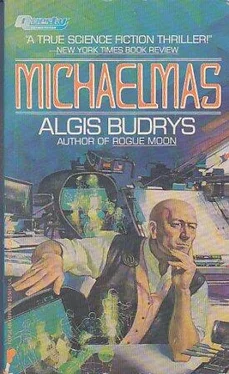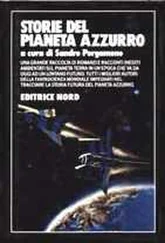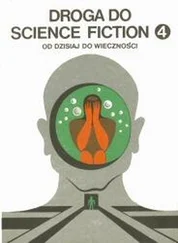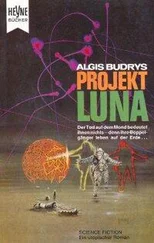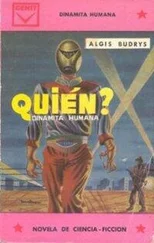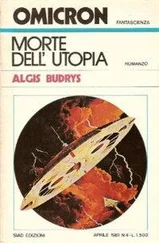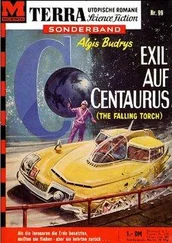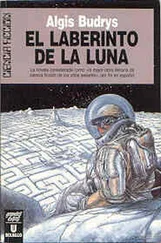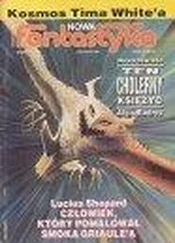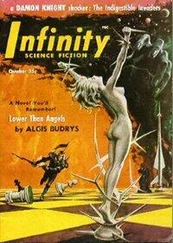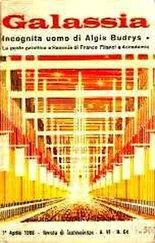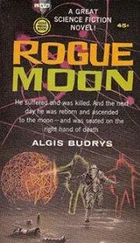To Sydney Coleman, my friend and this book’s friend
Effective assistance in a great variety of forms was given this project by A. C. Spectorsky, Carl Sagan, Jan Norbye and James Dunne, Ed Coudal, William B. Sundown, Slim Sanders, Chuck Finberg, Ed and Audrey Ferman, Bob Kaiser, Brad Bisk, Don Borah, Marshall Barksdale, the presence in my mind of James Blish, and most particularly Edna F. Budrys, in that simultaneous order.
This novel incorporates features of a substantially shorter and significantly different version published in The Magazine of Fantasy and Science Fiction, Copyright © 1976 by A. J. Budrys.
When he was as lonely as he was tonight, Laurent Michaelmas would consider himself in a dangerous mood. He would try to pry himself out of it. He’d punch through the adventure channels and watch the holograms cavort in his apartment, noting how careful directors had seen to it there was plenty of action but room as well for the viewer. At times like this, however, perhaps he did not want to be so carefully eased out of the way of hurtling projectiles or sociopathic characters.
He would switch to the news channels. He’d study the techniques of competitors he thought he had something to learn from. He’d note the names of good directors and camera operators. So he’d find himself storing up a reserve of compliments for his professional acquaintances when next he saw them, and that, too, wasn’t what he needed now.
After that, he would try the instructional media; the good, classic dramas, and opera; documentaries; teaching aids —but the dramas were all memorized in his head already, and he had all the news and most of the documentary data. If there was something he needed to know, Domino could always tell him quickly. It would pall.
When it did, as it had tonight, he would become restless. He would not let himself go to the romance channels; that was not for him. He would instead admit that it was simply time again for him to be this way, and that from time to time it would always be this way.
With his eyes closed, he sat at the small antique desk in the corner and remembered what he had written many years ago.
Your eyes, encompassed full with love,
Play shining changes like the dance of clouds.
And I would have the summer rain of you
In my eyes through
The dappled sunlight of our lives.
He put his head down on his arms for a moment.
But he was Laurent Michaelmas. He was a large-eyed man, his round, nearly hairless head founded on a short, broad jaw. His torso was thick and powerful, equipped with dextrous limbs and precisely acting hands and feet. In his public persona he looked out at the world like an honest child of great capability. Had his lips turned down, the massive curve of his glistening scalp and the configuration of his jaw would have made him resemble a snapping turtle. But no one in his audiences had ever seen him that way; habitually his mouth curved up in a reassuring smile.
Similarly when he moved, his swift feet in their glistening black shoes danced quickly and softly over parquet and sidewalk, up marble steps and along vinyl-tiled corridors, in and out of houses of commerce, universities, factories, places of government, in and out of ships, aircraft, and banks. There was hardly anywhere in the world where his concerns might not be expected to take him, smiling and polite, reassuring, his flat black little transceiving machine swinging from its strap over his left shoulder, his fresh red carnation in the buttonhole of his black suit.
His smile looked into the faces of the great as freely as it did into anyone else’s, and it was a long time since he’d actually had to show his press credentials. When in New York, he made his bachelor home in this living space overlooking Central Park from the top of a very tall building. He didn’t make much of its location. Nor had anyone but he ever seen the inside of it, he having been a widower since before his professional floreat. So he did not have to apologize for the blue Picasso over his desk, or the De Kooning, Braque, and Utrillo that were apportioned to other aspects of the room. He lived here as he liked. Most of the time, baroque music played softly and sourcelessly wherever he went about the apartment, as if he had contrived to have a strolling ensemble follow after him discreetly.
Seated now, his face reminiscing bleakly, the comm unit resting at his elbow, he was interrupted when one of the array of pinpoint pilot lights blinked. It was red. The machine’s speakers simultaneously gave a premonitory pop. “Mr. Michaelmas.”
The voice was reserved, the tone dry. A spiritless man might have thought it reproving. Michaelmas turned towards the machine with friendly interest. “Yes, Domino.”
“I have a news bulletin.”
“Go ahead.” Michaelmas always gave the impression of appreciating every moment anyone could spare him. That manner had served many a famous interviewer before him. Michaelmas apparently never discarded it.
“Reuters has a story that Walter Norwood is not dead. He is almost fully recuperated from long-term intensive treatment, and is fit to return to duty.”
Laurent Michaelmas sat back in his chair, the jowls folding under his jaw, and raised one eyebrow. He steepled his fingertips. “You’d better give me that verbatim.”
“Right. 'Berne, September twenty-nine. Walter Norwood alive and well, says two-time Nobel winner life scientist. Doktor Professor Nils Hannes Limberg announced here 0330 Berne time astronaut Walter Norwood, thought dead in June destruction his Sahara orbital shuttle, suffered extensive injuries in crash his escape capsule on Alpine peak near world-famous Limberg Sanatorium. Limberg states now that publicity, help, advice then from others would have merely interfered with proper treatment. Norwood now quote good as ever and news is being released at this earliest medically advisable time endquote. UN Astronautics Commission notified by Limberg just previous to this statement. UNAC informed Norwood ready to leave sanatorium at UNAC discretion. Limberg refers add inquiries to UNAC and refuses media access to sanatorium quote at this time endquote. Bulletin ends. Note to bureau managers: We querying UNAC Europe. Reuters Afrique please query UNAC Star Control and send soonest. Reuters New York same UNAC there. Reuters International stand by. End all.'”
Laurent Michaelmas cocked his head and looked up and off a nothing. “Think it’s true?”
“I think the way Limberg’s reported to have handled it gives it a lot of verisimilitude. Very much in character from start to finish. Based on that, the conclusion is that Norwood is alive and well.”
“Damn,” Michaelmas said. “God damn.”
He played with his fingertips upon the warm satiny wood of the desktop. The nails of his left hand were long, while those of his right hand were squared off short and the fingertips showed considerable callosity. One aspect of his living-room area mounted a large panel of blue-black velvet. Angular thin brass hooks projected from it, and on those were hung various antique stringed instruments. But now Michaelmas swung around in his chair and picked up a Martin Dreadnaught guitar. He hunched forward in the chair and hung brooding over the instrument, right hand curled around its broad neck.
“Domino.”
“Yes, Mr Michaelmas.”
“What do you have from the other media?”
“On the Norwood story?”
“Right. You’d better give it priority in all your information feeds to me until further notice.”
“Understood. First, all the other news services are quoting Reuters to their Swiss and UN stations and asking what the hell. AP’s Berne man has replied with no progress on the phone to Limberg, and can’t get to the sanatorium — it’s up on a mountain, and the only road is private. UPI is filing old tapes of Norwood, and of Limberg, with background stories on each and a recap of the shuttle accident. They have nothing; they’re just servicing their subscribers with features and sidebars, and probably hoping they’ll have a new lead soon. All the feature syndicates are doing essentially the same thing.”
Читать дальше
